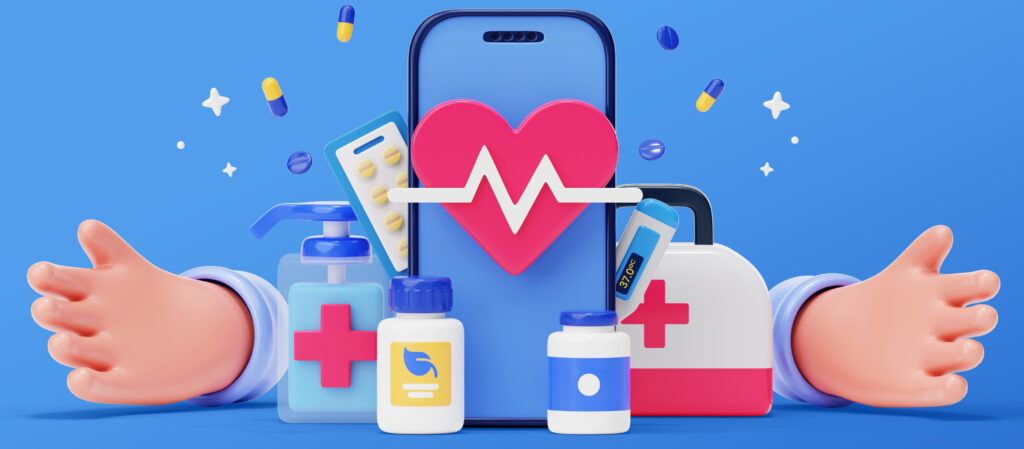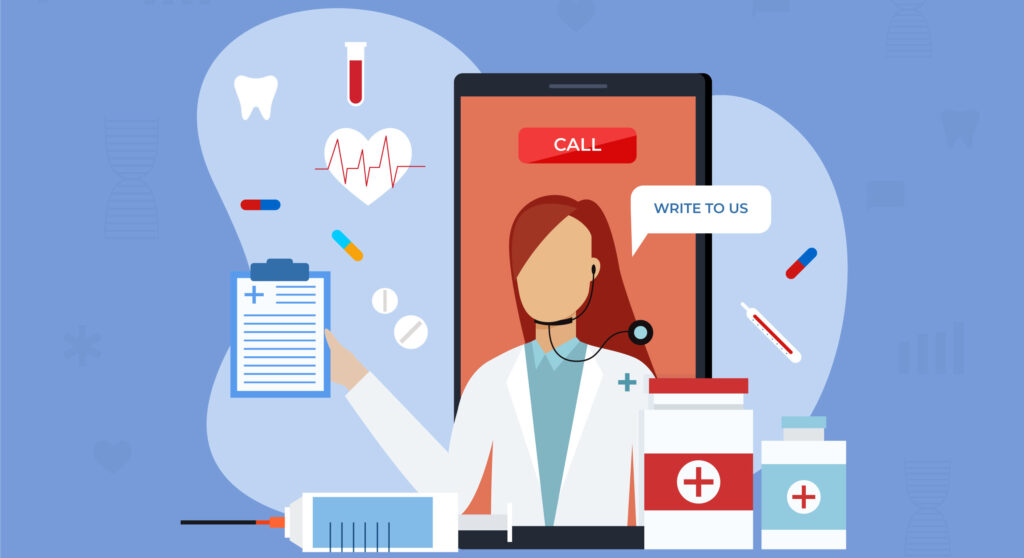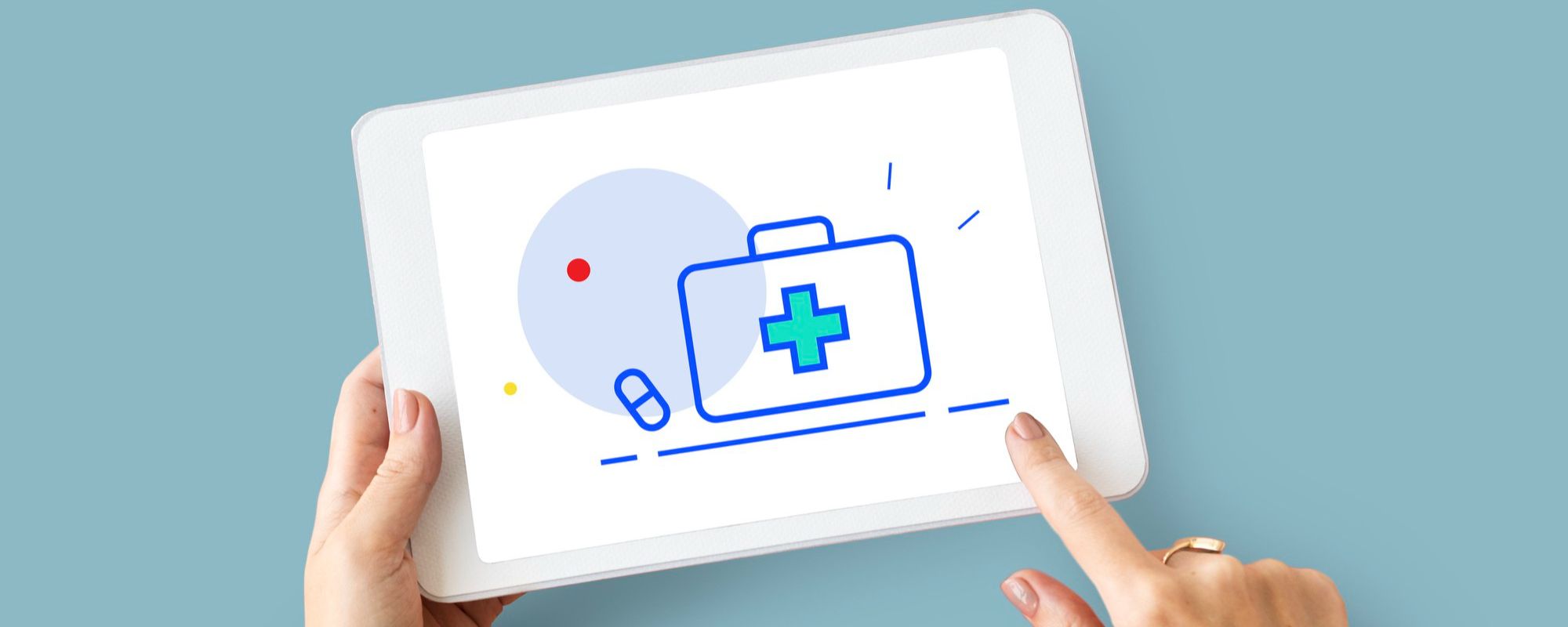The healthcare industry has witnessed a digital revolution in recent years, with technology reshaping the way care is delivered and experienced. Custom healthcare app development stands at the forefront of this transformation, offering bespoke solutions that cater to the unique needs of healthcare providers and patients alike.
In this blog, we delve into the world of custom healthcare apps, exploring their benefits, key features, and the considerations involved in creating an app that not only meets regulatory standards but also enhances the quality of care.
Key Benefits of Custom Healthcare App Development
Custom healthcare app development offers a myriad of advantages over generic health applications. Below are some key benefits that highlight the importance and impact of these tailored solutions:
Meeting Specific Healthcare Needs
Customisation: Generic health apps may not address the unique challenges faced by different healthcare providers or patient groups. Custom apps are specifically designed to meet the exact needs of users, whether it’s tracking chronic diseases, managing hospital workflows, or providing telemedicine services.
Improving Patient Outcomes
Precision: By providing tools that are tailored to monitor specific health conditions, custom apps can contribute to improved patient monitoring and management, leading to better health outcomes.
Adherence: Features such as medication reminders, appointment scheduling, and personalised health tips can increase patient adherence to treatment plans.
Enhancing Patient Experience
User-Centric Design: Custom apps can be designed with user experience at the forefront, making them intuitive and user-friendly, which can lead to higher engagement and satisfaction.
Accessibility: With mobile health apps, patients can access care and health information from anywhere, breaking down geographical barriers and making healthcare more accessible.
Increasing Healthcare Efficiency
Automation: Custom apps can automate routine tasks, freeing up healthcare professionals to focus more on patient care rather than administrative duties.
Coordination: By facilitating better coordination among healthcare team members, custom apps can enhance the delivery of care and reduce the likelihood of errors.
Ensuring Data Security and Compliance
Security: With the rise of cyber threats, custom apps can incorporate robust security measures tailored to protect sensitive health data, ensuring patient confidentiality.
Regulatory Compliance: Developers can build custom apps to comply with specific health regulations and standards, such as the Health Insurance Portability and Accountability Act (HIPAA), ensuring that healthcare providers avoid legal penalties.
Driving Innovation in Healthcare
Cutting-Edge Solutions: Custom app development allows for the inclusion of latest technologies like AI, machine learning, and blockchain, pushing the boundaries of what is possible in healthcare.
Research and Development: Data collected through custom apps can be invaluable for medical research, helping to uncover new insights into diseases and patient care.
Cost Savings
Long-Term Savings: By optimising healthcare processes and reducing administrative burdens, custom apps can lead to significant cost savings for healthcare organisations.
ROI: While the initial investment in custom app development might be higher than off-the-shelf solutions, the return on investment can be substantial due to the increased efficiency and patient volume that a well-designed app can bring.

Why Outsource Your Custom Healthcare App Development
Outsourcing app development can offer significant benefits for healthcare organisations. Below are key reasons why outsourcing this process can be advantageous:
Access to Specialised Expertise
Skills and Experience: Outsourcing companies often have teams with specialised skills and extensive experience in healthcare app development, ensuring high-quality outcomes.
Industry Insights: These teams are usually well-versed in the latest healthcare trends, technologies, and regulations, which can greatly benefit the development process.
Cost-Effectiveness
Reduced Costs: Outsourcing can be more cost-effective than hiring a full-time in-house team, as it eliminates the need for recruitment, training, benefits, and other employee-related expenses.
Budget Flexibility: Organisations can work on a project basis and control development costs more effectively, paying only for the services they need.
Focus on Core Business Functions
Resource Allocation: Healthcare providers can allocate their internal resources and personnel to focus on their core services and patient care instead of diverting attention to app development.
Operational Efficiency: Outsourcing allows healthcare organisations to streamline their operations by delegating technical tasks to external experts.
Faster Time to Market
Efficiency: Outsourcing firms can mobilise teams quickly to start on projects, which can lead to faster development cycles and quicker app deployment.
Scalability: These firms can easily scale teams up or down based on project demands, ensuring timely delivery.
Risk Mitigation
Shared Responsibility: Outsourcing partners share the responsibility for the project, including risks associated with development timelines, technical challenges, and quality assurance.
Professional Management: Experienced project managers in outsourcing firms can anticipate potential issues and mitigate risks effectively.
State-of-the-Art Technology Access
Advanced Tools: Outsourcing partners often have access to the latest software development tools and technologies, which can enhance the functionality and performance of the healthcare app.
Innovation: These firms can bring innovative solutions and forward-thinking approaches to the development process.
Continuous Support and Maintenance
Long-Term Partnership: Outsourcing can lead to long-term partnerships where the external team provides ongoing support, updates, and maintenance for the healthcare app.
Technical Assistance: Healthcare organisations benefit from having a dedicated team to address any technical issues or user feedback post-launch.
Flexibility and Scalability
Adaptability: Outsourcing provides the flexibility to adapt to changing project requirements without the need to hire or train additional staff.
Growth Management: It allows healthcare organisations to easily scale their app development efforts in line with their growth and patient demand.
How Appscrip Can Help
Outsourcing healthcare app development to Appscrip can provide healthcare organisations with access to expert knowledge and cutting-edge technology while also being cost-effective and risk-mitigating.
This will ensure healthcare providers can focus on their primary goal of delivering quality patient care while leaving the technical complexities to specialised development teams.

Steps For Custom Healthcare App Development
Building a custom healthcare app involves a series of strategic and technical steps. Here’s a breakdown of the process to ensure your app is effective, compliant, and user-friendly:
Define the Purpose and Scope: Determine what problems the app needs to solve, who the end-users are, and what unique value it will offer. Clearly define the goals of the app, whether it’s improving patient engagement, streamlining administrative tasks, or providing telehealth services.
Conduct Market Research: Study existing healthcare apps to identify gaps in the market and understand what features work well. Engage with potential users to gather insights on their needs and preferences.
Ensure Regulatory Compliance: Familiarise yourself with healthcare regulations like HIPAA, GDPR, or HITECH that apply to your app. Incorporate necessary features and security measures to ensure the app meets all legal and privacy requirements.
Create a Feature List: List essential features that align with the app’s objectives, such as appointment scheduling, prescription refills, or secure messaging. Consider additional functionalities that can enhance user experience, like push notifications or health trackers.
Plan UX and UI Design: Sketch out user flows to create an intuitive and accessible user experience. Design the visual elements of the app, focusing on simplicity and ease of use, while also ensuring accessibility for all users including those with disabilities.
Choose the Right Technology Stack: Select programming languages and frameworks for building the user interface, such as React or Swift. Choose suitable technologies for server-side operations, databases, and app security.
Develop a Minimum Viable Product (MVP): Start with a simple version of the app that includes only the most essential features. Use feedback from the MVP to make improvements and add features in subsequent iterations.
Ensure Data Security and Privacy: Implement encryption for data at rest and in transit. Use strong authentication methods to protect user accounts and data.
Test the App: Conduct thorough testing for bugs, performance issues, and usability problems. Have real users test the app to provide feedback on the user experience and functionality.
Launch the App: Plan the launch of your app, considering marketing and outreach to target users. Follow the guidelines for app submissions on platforms like Apple’s App Store and the Google Play Store.
Collect User Feedback and Analyze Usage: Encourage users to provide feedback on their experience with the app. Use data analytics tools to understand user behaviour and identify areas for improvement.
Plan for Ongoing Maintenance and Updates: Schedule regular updates to keep the app current with the latest OS versions and security patches. Continue to add features and refine the app based on user feedback and technological advancements.
Conclusion
As the healthcare industry continues to evolve, the demand for personalised, secure, and efficient healthcare solutions grows ever stronger. Custom healthcare apps stand as a beacon of progress, offering the potential to improve health outcomes, enhance patient engagement, and streamline healthcare services.
If you’re looking to develop a custom healthcare app that meets the high standards of today’s medical industry, consider partnering with a team that has the expertise and experience to bring your vision to life. Appscrip is at the forefront of healthcare app development solutions, offering a blend of innovation, proficiency, and dedication to security and compliance.
Take the next step towards creating an app that stands out in the digital health space. Contact Appscrip today, and let’s build a healthcare app that makes a ‘healthy’ difference.










